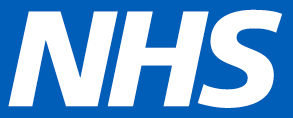
Analysis of disability equality in the workforce 2022
This summary report shares the key findings from our Workforce Disability Equality Standard (WDES) data analysis for 2022. It highlights differences in outcomes and experiences between Disabled and non-disabled employees, the progress we have made and where we need to improve.
What is the NHS Workforce Disability Equality Standard?
The purpose of the NHS Workforce Disability Equality Standard is to ensure that Disabled job applicants and employees have equal access to opportunities and receive fair treatment in the workplace. It uses a series of metrics as measures of the outcomes and experiences of Disabled employees in the NHS.
Definitions
Whilst this broadly describes those who are protected from disability discrimination by the Equality Act 2010, we recognise that not all such individuals will identify as Disabled.
Throughout our data, there is always an option for employees to leave their disability status as undisclosed either by indicating ‘Prefer not to say’ or by not responding to the disability monitoring question. As the disability status of these individuals is unknown, we have included them in the data set but excluded these figures when comparing statistics for Disabled and non-disabled employees.
The context
Although not mandated for commissioning support units, SCW is committed to collecting and analysing data against the WDES metrics. The results support us to plan and take action to reduce disparities in outcomes and workplace experiences between Disabled and non-disabled people.
This approach reflects our organisational values, supports our aspiration of making SCW a great place to work and contributes to the 2023/25 business plan objectives to ‘create a strong, diverse and sustainable workforce’ and prioritise the wellbeing of our people.
It also resonates with several commitments made in the NHS People Plan, for example: retaining staff, reducing harassment, bullying and abuse and supporting the development of more diverse leadership teams.
The information presented is from the following sources:
- Electronic Staff Record (ESR): 31 March 2022
- NHS Jobs recruitment data: unavailable for financial year 2021/22
- Human resources information on the capability process: unavailable for financial year 2021/22
- SCW annual survey responses: 2022
Summary of findings
- The 2022 report demonstrates continuing improvement in the representation of Disabled employees across the organisation particularly within our senior leadership (bands 8a+).
- Survey data indicates an increasingly open workplace culture where more employees are declaring their disability status, presenteeism and pressure from managers to attend work when unwell has decreased.
- Formal reporting of harassment, bullying and abuse (HBA) incidences has increased, possibly another indicator of growing levels of engagement with Disabled employees and the feeling that it is safe to raise concerns about HBA at SCW.
The report also illustrates where further focus is required, we have seen regression of metrics from 2021 to 2022 including: harassment, bullying and abuse; career progression or promotion, feeling valued, reasonable adjustments and staff engagement.
Workforce profile
In March 2022,6.5% of SCW employees (102 individuals) declared a disability on ESR. This is up from 4.3% in 2021.
Presenteeism
In 2022, 11.1% of Disabled staff survey respondents reported pressure from their manager to work while unwell. This compares to 7.9% of non-disabled staff. This has improved from 13.3% of Disabled employees in 2021.
Senior leadership representation
4.5% of staff within bands 9+ declared a disability on ESR in 2022. This has improved since 2021 when it was 0%.
Harassment, bullying, abuse
21.8% of Disabled staff survey respondents in 2022 experienced harassment, bullying or abuse (HBA), compared to 13.8% of non-disabled staff. This has worsened since 2021 when it was 10.6%.
Career progression
52.4% of Disabled staff survey respondents in 2022 believed that SCW provides equal opportunities for career progression or promotion, compared to 62.0% of non-disabled respondents. This has decreased from 62.4% last year.
Feeling valued
49.8% of Disabled staff survey respondents in 2022 said they felt valued, compared to 53.6% of non-disabled staff. This has decreased from 53.0% of disabled employees and 61.0% of non-disabled employees in 2021.
Reasonable adjustments
88.1% of Disabled staff survey respondents requiring adjustments had received them in 2022. 11.9% of respondents felt SCW had not made adequate adjustments. This has decreased from 93.3% of adjustments provided in 2021.
Staff engagement score
The staff engagement score for Disabled staff survey respondents was 6.5 in 2022 compared to 7.0 for non-disabled employees. This has decreased from 7.0 and 7.4 in 2021 respectively.
We are our people. Our diverse, talented workforce is our crown jewel – we do everything we can to grow our people and equip them with the capabilities and skills they need to support health and care organisations in a flexible and agile way.
– SCW Business Plan
Conclusion
- Whilst we have made progress at SCW, and in improving the experiences of Disabled colleagues, our 2022 data demonstrates the oscillating nature of this journey. With increased awareness, declaration and openness about disability, comes greater recognition of workplace challenges such as harassment, bullying and abuse.
- Additionally, the 2022 staff survey is reflective of current pressures nationally and within the NHS such as continuing workplace changes and COVID-19 recovery, cost of living crisis and strikes impacting worker wellbeing. Therefore, some metrics showing a regression may not be reflective of a widening gap between disabled and non-disabled employee experience.
- We continue to invest and commit towards making SCW a great place to work, for persons with a disability to thrive, feel supported and belong. In May 2023, we renewed our Disability Confident Employer Level 2 status and intend to work towards our Disability Confident Leader Level 3 status in 2025/26. This will support us to continue improving outcomes and experiences for Disabled employees in SCW.
Disability Employee Network
The SCW Disability Network of approximately 67 members (66% of those who have declared a disability on ESR) continues to be engaged through the 'Belonging at SCW' programme, representing the voices of Disabled employees in SCW.
Through consultation with the network, priority actions have been identified for 2023-2025 including reviewing our reasonable adjustments process and improving our Equality Impact Assessment practice across the organisation.
The network continues to be engaged in hosting and facilitating events, sharing blogs and stories to create opportunities for the wider organisation to learn from the lived experience of colleagues with disabilities.

In 2022, the insights and recommendations from SCW’s 2021 WDES report were explored with our Disability Network, empowering and involving them to influence key priority actions arising from the report.
Next steps
We will continue to pursue collective actions agreed in 2022 through our action plan development, this is reflected in the recommendations below.
- Develop our learning and development hub to include content on Disabled lived experience and how best to support Disabled colleagues at work in partnership with our Disability Network.
- Explore a dedicated, real-time reporting platform for employees to flag experience of HBA thus improving psychological safety and encouraging all employees to speak up.
- Amplify the sunflower badge and scheme, encouraging uptake and conversations around adjustments and accommodations.
- Develop our reasonable adjustments process and supporting adjustment passports, ensuring adjustments are being applied equitably and without delays.
- Engage our Disability Network to understand how to further help facilitate voices of Disabled employees to be heard in the organisation.
- Improve disability declaration rates on ESR through a campaign, engage senior leaders to encourage role modelling and improve on declaration rate at this level.
Following the publication of the 2022 WDES, the next steps will be to review new recommendations and cross-reference or incorporate into the existing ‘One SCW Action Plan’.
These actions and measures will be revisited and reviewed continually with Disability Network leads and People Services throughout 2023 to 2024, alongside the People and Wellbeing strategy, adapting and updating where required. To align with national WDES reporting, we will be producing our 2023 WDES report in late 2023. This will update on non-staff survey metrics and support monitoring of measures within our action plan.
For further information please see the analysis of key findings following this section, or to request this information in a different language or format, please


